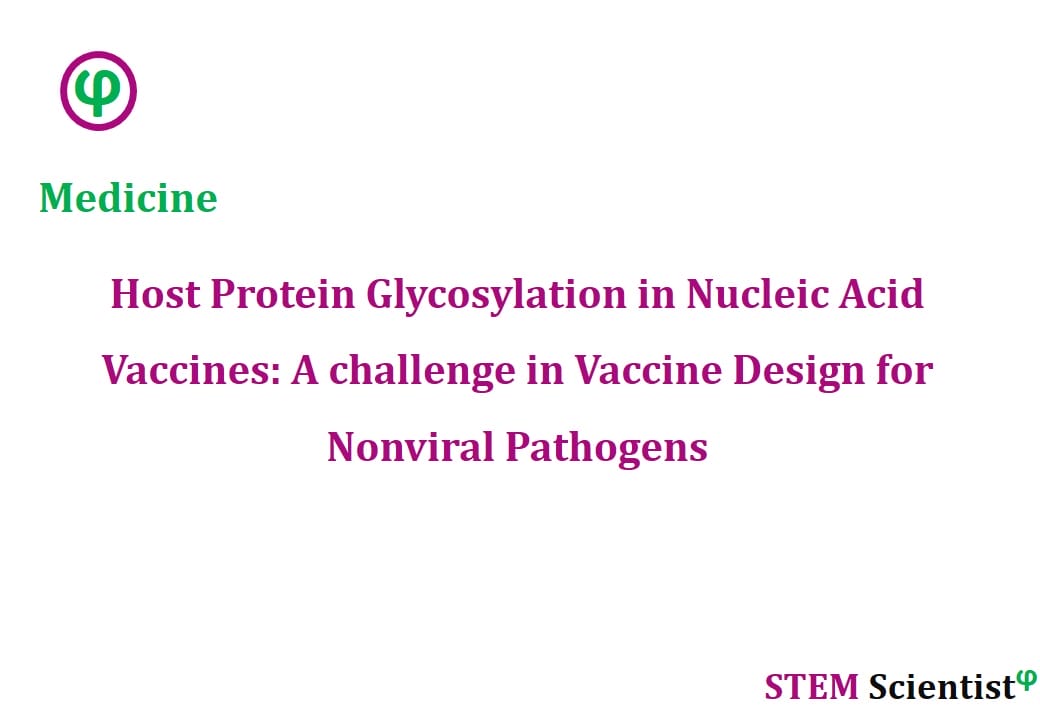
The following study was conducted by Scientists from University of Georgia, Athens, GA, USA. Study is published in Proceedings of the National Academy of Sciences Journal as detailed below.
Proceedings of the National Academy of Sciences (2020); 117(3): 1280-1282
Host Protein Glycosylation in Nucleic Acid Vaccines as a Potential Hurdle in Vaccine Design for Nonviral Pathogens
Abstract
Nucleic acid vaccines introduce the genetic materials encoding antigenic proteins into host cells. If these proteins are directed into the secretory pathway with a signal/leader sequence, they will be exposed to the host’s glycosylation machinery, and, if their amino acid sequences contain consensus sequons for N-linked glycosylation, they may become glycosylated. The presence of host glycans on the proteins of microbial origin may prevent a strong protective immune response either through hindering access to key epitopes by lymphocytes or through altering immune responses by binding to immunoregulatory glycan-binding receptors on immune cells. Ag85A expressed by Mycobacterium tuberculosis (Mtb) is a bacterial surface protein that is commonly used in nucleic acid vaccines in multiple clinical trials. Here we show that, when Ag85A is expressed in mammalian cells, it is glycosylated, does not induce a strong humoral immune response in mice, and does not activate Ag85A-specific lymphocytes as highly as Ag85A natively expressed by the bacterium. Our study indicates that host glycosylation of the vaccine target can impede its antigenicity and immunogenicity. Glycosylation of the antigenic protein targets therefore must be carefully evaluated in designing nucleic acid vaccines.
Source:
Proceedings of the National Academy of Sciences
URL: https://www.pnas.org/content/117/3/1280
Citation:
Ozdilek, A., A. V. Paschall, et al. (2020). “Host protein glycosylation in nucleic acid vaccines as a potential hurdle in vaccine design for nonviral pathogens.” Proceedings of the National Academy of Sciences 117(3): 1280-1282.


